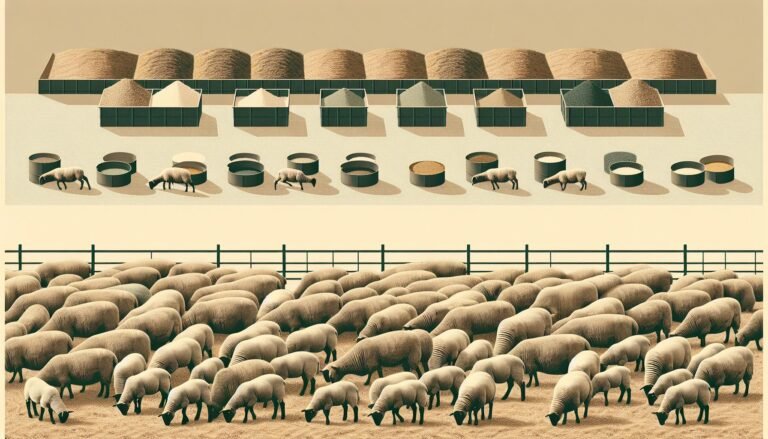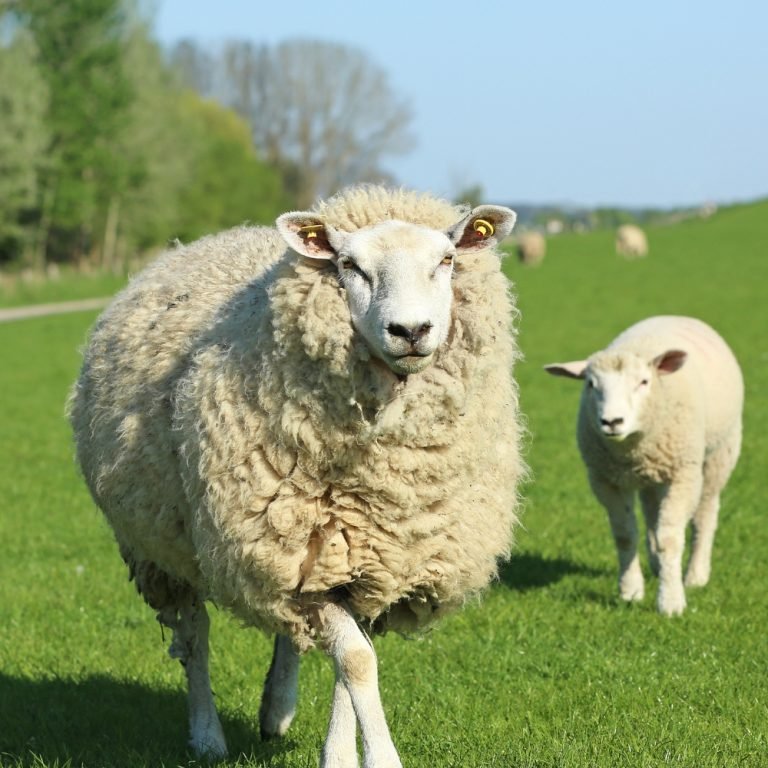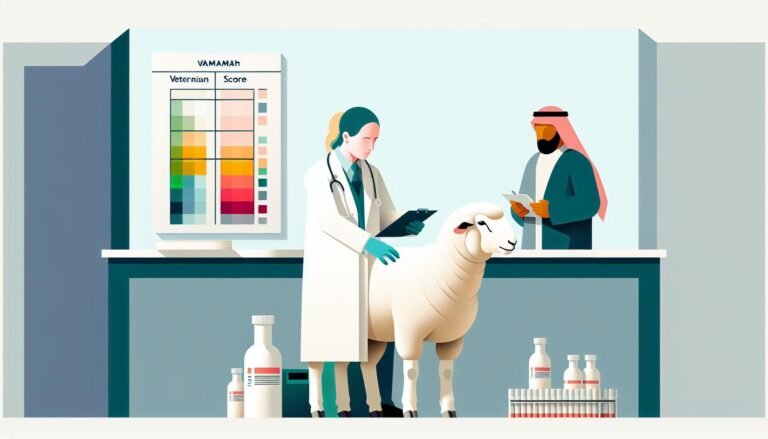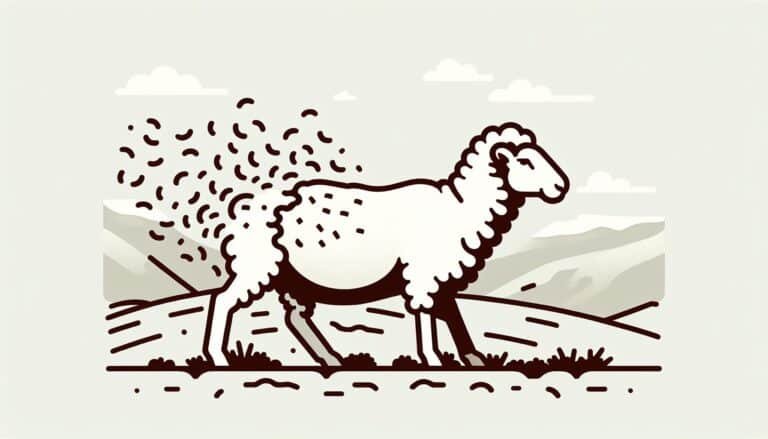Do Sheep Love Pumpkins? Unveiling their Dietary Preferences and Nutritional Benefits
Ever found yourself wondering, “Do sheep eat pumpkins?” Well, you’re not alone. It’s a question that’s piqued the curiosity of many, especially those with a keen interest in farming and livestock.
Sheep are known for their diverse diet, but does it include pumpkins? This might seem like a simple question, but it’s one that requires a deeper understanding of a sheep’s dietary habits.
Let’s delve into this intriguing topic. I’ll provide an insightful look at what sheep eat, focusing on their potential love for pumpkins. It’s time to unravel the mystery and feed your curiosity. Stay tuned as we explore this fascinating subject together.
Key Takeaways
- Sheep do eat pumpkins and find them to be a desirable part of their diet due to their sweet taste and soft texture.
- Pumpkins contribute significantly to a sheep’s health by providing high amounts of Vitamin A, which aids in vision, reproduction, cell function, and immune system enhancement.
- Pumpkin seeds can serve as a natural dewormer, providing a safe and effective remedy against common parasite infestations in sheep.
- Despite the numerous health benefits, pumpkins should not form the majority of a sheep’s diet, which should primarily consist of grass, hay, and grains.
- Overfeeding sheep on pumpkins can disrupt their digestive system, hence moderation is crucial.
- Balance in a sheep’s diet is important, incorporating a mix of grass, hay, grains, and occasional treats like pumpkins for a well-rounded nutritional intake.
Do Sheep Eat Pumpkins?
Let’s dive right into our headline question: do sheep eat pumpkins?
Yes, they do. In fact, pumpkins are a great source of nutrition for sheep. Don’t be surprised if you see a flock of sheep happily munching on these large, juicy fruits. A balanced diet for sheep could indeed contain pumpkins, among other fruits and feeds.
Pumpkins pack a rich nutrient profile. Notably, they’re high in Vitamin A, which proves beneficial for the health of sheep. Vitamin A aids in maintaining an effective immune system, plays a significant role in vision, reproduction, and supports cell function.
Sheep also find the taste of pumpkins quite appealing. The sweet taste and soft texture make pumpkins a particular treat for them.
But it’s not just about the fruit itself; sheep may also eat pumpkin seeds. That’s an added bonus since pumpkin seeds can act as a natural dewormer. Parasite infestation is common among sheep. Organic farmers or those aiming at less reliance on medications often resort to using pumpkin seeds as a dewormer.
However, despite the benefits, remember that pumpkins should not form the majority of sheep’s diet. Sheep primarily feed on grass, hay, and grains, with fruits like pumpkins being a supplemental delight.
Pumpkin feed’s benefits and proportion in sheep’s diet:
| Benefit | Proportion in Diet |
|---|---|
| High in Vitamin A | Supplemental feed – not majority |
| Tasty and appealing | Encourages appetite and grazing |
| Pumpkin seeds can deworm | Natural remedy for common parasite infestation |
A Look into a Sheep’s Diet
Understanding the dietary needs and preferences of sheep is essential to maintain their health and productivity. First, let’s clear one thing right off the bat: sheep’s primary source of food is grass. Grasses provide the necessary base nutrition that these ruminant animals need.
Of course, simply grazing on pastures is not enough. Sheep also thrive on hay, particularly during winter when grass is scarce. The types of hay varies, but it’s usually made from grasses such as clover or alfalfa. Hay ensures that the sheep get adequate dietary fiber, despite the change in season. Trust me when I say, it’s a powerhouse of nutrients for our woolly friends.
Grains are another crucial part of a sheep’s diet. They are treated as energy-dense feeds and are often provided to support rapid growth, lactation, or to build body condition ahead of breeding season. A few commonly fed grains include corn, oats, barley, and wheat. But watch out – overfeeding grains can cause digestive disorders, so moderation is key.
Now let’s talk about our original point of interest, the humble pumpkin. It’s not a core part of the sheep’s diet, but more of a highly nutritious treat. Sheep love munching on pumpkins, and can even consume the seeds, which act as a natural dewormer. Pumpkins offer a fantastic source of Vitamin A, a vital nutrient that boosts the immune system, ensures good vision, supports reproduction and cell functions. So, if you have a few spare pumpkins lying around, you now know they aren’t going to waste! Pumpkins, however, can’t replace sheep’s staple food, but they surely make a delightful snack.
Take a glance at the table below, which summarizes a sheep’s diet and the purpose of each feed type:
| Feed Type | Purpose |
|---|---|
| Grass | Base nutrient provider |
| Hay | Provides dietary fiber |
| Grains | Energy-dense feeds |
| Pumpkins | Supplemental nutrient boost |
As we delve more into sheep dietary practices, remember, balance is everything. Each part of a sheep’s diet contributes to the overall nutrition, so it’s critical to offer a variety. The aim is to ensure that the sheep get the sufficient nutrients they need, yet enjoy their food, because who doesn’t love a tasty treat once in a while?
What Do Sheep Usually Eat?
Sheep, universally recognized grazers, have a simple yet nourishing diet built around grass. As such, grasslands are their preferred munching ground, providing them with the basic nutrition needed for healthy growth and sustenance. This dietary mainstay is especially essential during the warmer months when grass blooms abundantly, and sheep can graze to their hearts’ content.
When it comes to a sheep’s diet, nothing is more crucial than fiber. Hay, comprising mostly dried grass or legumes, steps up to the role exceptionally well. In winter months when grass is scant, they often rely on hay. It adequately meets their fiber requirements, keeps their digestive system working flawlessly and maintains their constant grazing habit, both necessary and therapeutic for these docile creatures.
Let’s move on to grains in a sheep’s diet. A sheep’s diet may get a boost from grains such as corn, oats, barley, and wheat. These aren’t just palatable to them but also crucial for their development and energy requirements. Profitable as they are, overfeeding these can pose real troubles. An overindulgence on grains can lead to digestive disorders, throwing their health off balance. So while sheep are fans of these energy-dense foods, they should be served judiciously and in moderation.
Now let’s veer away from the staples and look at some enjoyable extras. What about treats like pumpkins? Sheep are fans! While they aren’t part of the everyday sheep menu, they are a welcome occasional treat. High in Vitamin A, pumpkins give a much-needed boost to the sheep’s immune system, vision, and cell function. Not just nutritious, they are also a delightful break from their usual munchies. Still, it’s essential to remember these are treats and should be given sparingly.
Variety is the spice of life, even in a sheep’s diet. Offering a balance of grass, hay, grains and occasional treats make for a nutritionally rich and enjoyable diet. Adequate fiber, energy-sating grains, and vitamin-packed treats like pumpkins come together to give sheep a well-rounded, healthy feeding experience.
Can Sheep Eat Pumpkins?
As an expert in the field, I’d like to address the question head-on – Yes, sheep can eat pumpkins! Pumpkins fall under the occasional treat category in a sheep’s diet and not only do sheep love them, but they also fetch remarkable health benefits from these bright orange vegetables.
You might ponder – why exactly are pumpkins beneficial for sheep? The answer lies in the nutrient composition of this humble vegetable. Pumpkins pack a serious punch when it comes to Vitamin A content, an essential nutrient for a strong immune system, healthy vision, efficient reproduction, and overall cell function. So, the next time you’re feeding pumpkins to your sheep, remember, you’re fortifying them with essential nutrients.
One interesting fact is that sheep are not just restricted to the pumpkin’s flesh or pulp. They can relish the entire pumpkin including the seeds and the rind. Pumpkin seeds, particularly, have an additional advantage. They are known to alleviate issues related to parasites in sheep. However, moderation is key, and it’s critical to not overfeed them on this treat as an excess of pumpkins could potentially disrupt their digestive system.
%%
| Nutrient | Benefit for sheep |
|---|---|
| Vitamin A | Boosts the immune system, Ensures healthy vision, Aids reproduction and cell function |
| Pumpkin Seeds | Assists in alleviating parasite issues |
Just like humans, sheep too enjoy variety in their meal plan. Supplementing their diet with occasional treats like pumpkins could keep their interest piqued, ensuring they get a comprehensive nutrient profile. However, while pumpkins are a healthy addition, it’s important to bear in mind that they don’t replace the core components of a sheep’s diet – grass, hay, and grains.
One should always aim for balance – feeding them primarily on grass especially during the warmer times of the year, supplementing with hay during winters when grass is less bountiful, grains for energy and growth in controlled quantities, and an occasional pumpkin treat to sweeten their diet.
Why Some Sheep Might Enjoy Pumpkins
Pumpkins stand out as a nutritious and tasty treat that sheep seem to enjoy. They’re far from being a staple in the agriculture world but hold a unique place in the diet of some sheep.
Why do sheep enjoy pumpkins? Here’s where learning about their natural eating behaviors provides insights.
Sheep are grazing animals. Be it a hot summer day or a chilly autumn evening, sheep are always on the prowl for something flavorful to consume. They’re known for their wide-ranging palates and are not shy about trying out different types of vegetation.
Now step in pumpkins, a seasonal plant that offers a refreshing change of pace for these woolly grazers. Not only are pumpkins vibrant and appetizing, but they also pack a wallop when it comes to nutritional content.
Remember when we mentioned earlier that pumpkins are high in Vitamin A? It’s true — and it’s one of the reasons they make such an excellent treat for sheep. Vitamin A supports a sheep’s vision, reproduction, and cell function. It also boosts the immune system, ensuring a healthier flock.
| Nutrient | Benefit |
|---|---|
| Vitamin A | Strengthens immune system, enhances vision, supports reproduction and cellular function |
Further, pumpkins also provide essential nutrients such as Vitamin C, potassium, and fiber — all essential factors contributing to the well-being of sheep.
When pumpkins are ripe and get that perfect orange hue, they become an irresistible feast for sheep. Their natural curiosity mixed with the sweet taste of pumpkins makes it a memorable snacking experience for them.
Just remember, while pumpkins may be a delightful treat for sheep, a balanced diet is crucial. So, even though they love it, don’t make pumpkins a regular part of their diet. Keep it as an occasional treat. After all, too much of a good thing isn’t always beneficial.
Conclusion
So, do sheep eat pumpkins? Absolutely! As we’ve seen, pumpkins are a nutritious treat that sheep relish. They’re packed with Vitamin A, beneficial for their immune system, vision, reproduction, and cell function. But remember, while sheep enjoy this tasty treat, it’s essential to maintain a balanced diet. Grass, hay, and grains should remain their primary food sources. Overreliance on pumpkins or any other treat can lead to nutritional imbalances. So, go ahead and give your woolly friends a pumpkin treat every now and then. They’ll love the change of pace, and you’ll love knowing you’re providing a healthy addition to their diet. Just remember, moderation is key!







